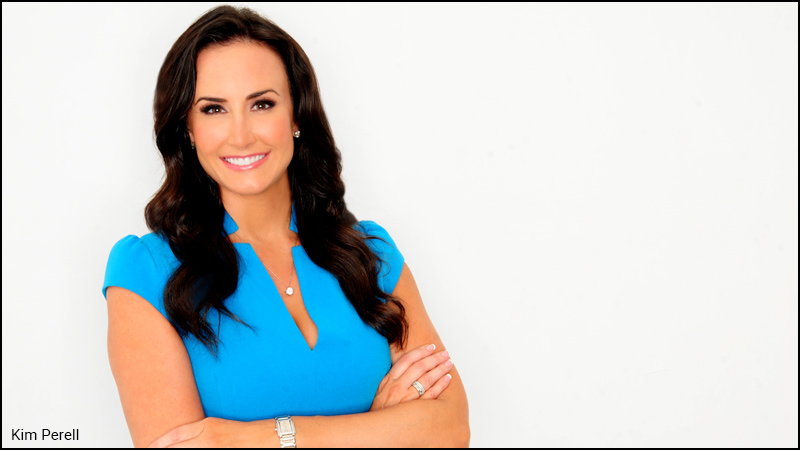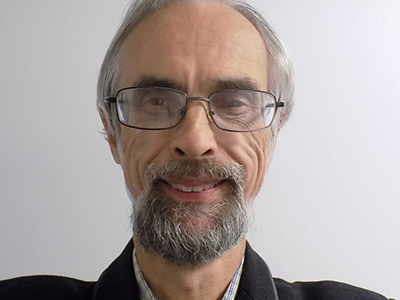Kim Perell Dares Aspiring Entrepreneurs to Face Their Fears and Make the Jump
Kim Perell knows something about being an entrepreneur. At 22, she was the seventh hire as a marketing analyst at Xdrive.com, a Los Angeles data storage company that later pivoted to selling digital ads. She was a millionaire on paper overseeing 30 people when the company went bust in March 2001.

"Although the dot-com crisis was a wake-up call, I believed in the potential of the digital business, since even my grandma had an AOL account," Perell told Startup Savant. She is now co-founder and CEO of Miami-based 100.co, a branding platform for consumer products powered by artificial intelligence. "She believed in my vision of how to sell online ads and lent me $10,000 to start my first company. My boyfriend — now husband — and I moved to Hawaii to live with his parents to save money while I tried to launch this."
Working 16-hour days, she eventually hired a small team. When the market for ads dried up and her credit cards were maxed out, she bought and sold everything from teeth whitener to toys online. When pay-for-performance ads became popular, she grew the company and moved to San Diego to be near members of his family. In 2008, she sold it for $30 million, staying on as CEO.
Renamed Adconion Direct and based in Los Angeles, it was sold for $214 million in 2014 to Amobee, where she served as president before being promoted to CEO in 2016. She stepped down three years later and all along has been an angel investor in over 100 early-stage companies, with more than 20 successful exits, including sales to Apple and Intuit.
"I look for a huge market that is ripe for disruption that can be powered by technology and a visionary leader who sees things as they could be," said Perell. "But it's always pre-revenue, so you have to have a solid plan to scale and get to an exit."
Last year she moved to Miami with her husband, a stunt fighter pilot, and their four small children to start 100.co with serial entrepreneur James Brennan.
"After 15 years in California, which we loved, it was quite an adventure, but there are a lot of positive things about Florida, like the price of homes, less traffic, the weather, a more relaxed lifestyle, and the pro-business attitude," she said.
In the meantime, she had time to write a new book, “Jump: Dare to Do What Scares You in Business and Life,” in which she addresses in detail the excuses many wannabe entrepreneurs give themselves and others for not making the jump from secure jobs to follow their dreams.
The Road to Success Is Always Bumpy
Perell was born to two very different entrepreneurs. In her first book, “The Execution Factor: The One Skill That Drives Success,” she describes her mother as a business consultant "who is all heart, working with companies on their vision and values to help them with team building and to understand how to put people before profits … with a career that for the most part has remained stable."
Despite having an engineering degree, her father never held a job in that field "because he is a serial entrepreneur who sees opportunity everywhere." When her parents arrived in Portland, he opened a self-service auto-repair garage where customers could fix their own cars, but it never took off. Then he created a machine to make roofing tiles that was successful until the real estate market bottomed out. He then worked out a deal with banks to take over foreclosed homes, refurbish and flip them. After that, he opened a restaurant, a bar, and an elder care business, the latter proving more costly and difficult than he expected. The ups and downs meant they were often behind in paying the bills, and sometimes they had to warm the house from the fireplace. Most recently, at age 72, he started building carbon-neutral housing.
"Even at their lowest points, they believed in themselves," she wrote. "They committed themselves body and soul to the futures they dreamed of for our family. And they were tough as nails. Tenacity was a tenet I was brought up on. The ability to dream abundantly, combined with a willingness to put in the necessary hard work, conditioned me well to overcome setbacks, hard times, bankruptcy, and just everyday things that didn't swing in my favor. It's hard to beat a person who never gives up..."
Perell worked all through college at Pepperdine University in Malibu, California, arranging her classes on two days so on three other days she could clock in at 6 a.m. at an investment bank and in the afternoons at a marketing job. She graduated magna cum laude with a B.S. in Business Administration and joined the dot-com startup.
In retrospect, the early family exposure to risk and reward, struggling to survive in the Internet world, and her investment outcomes led her to see even the biggest challenges as learning experiences on the journey to long-term success.
"It's been statistically proven that people who have failed are more likely to succeed," she explained. "I've always thought about the risk of failure as a prerequisite for success. It is essential to growth, gives you perspective, lessons are learned about what works and what doesn't, and failure teaches you resilience."
"Many potential founders of new businesses have feelings of uncertainty, fear of failure, and even rejection, so they set goals about when they'll be ready and procrastinate until it's too late," Perell said. "To succeed as an entrepreneur, you need to get comfortable with being uncomfortable. Science tells us that uncertainty signals the brain to kickstart learning, while stability is like a shut-off switch that cancels out creative problem-solving. Confidence that you can be prepared and have the energy to make that jump can be cultivated by taking small steps towards your goals."
Jump With a Parachute That Works
So how to minimize risk and make it more likely that you won't jump off a cliff and find out your parachute won't open? Perell has lots of experienced-based advice (with Jump Prep and Jump Hacks at the end of each chapter of “Jump” to help readers focus on the qualities and steps needed):
- Know thyself. Take honest stock of your strengths to build the confidence you will need to be an entrepreneur. Do you have outstanding expertise in an area? Do you have a good record of predicting product success? Consult mentors or colleagues who can connect you with partners who can provide complementary strengths, "though be careful about feedback from those who their own unresolved doubts and fears." But being prepared is not just about having business skills. "Get involved in any self-improvement program that will help your physical, emotional, and spiritual well-being while you get financially ready for the jump."
- Make a specific one-year plan. Have a crystal clear vision of where you want to be in a year and build backward, writing down actionable steps to get there. The plan should be aspirational yet attainable. "There is no wrong first step, and life is full of unexpected twists and turns. A one-year plan is the trailhead, but without one, you're not likely to achieve your goals."
- Listen to your gut. Don't pretend you don't have fears; just imagine taking actions that lead up to the jump itself, and notice when you clench your muscles or feel your stomach doing flips. Pinpoint exactly what is causing anxiety and address that. Passion is essential to success, but don't let it blind you to the risks.
- Have a solid backup plan, but don't over-prepare. Consider the worst that could happen to yourself and others that may be affected and how those risks could be prevented or the consequences ameliorated if you fail. Consult with others who have tried something similar before and brainstorm with mentors and colleagues. Top business and military leaders say the time to act is when you are between 40% and 70% ready — too little prep is likely to lead to failure, but too much makes it probable you will miss the opportunity. Set a realistic but firm jump date and act.
"In my experience, every time you jump, you are one major step closer to something better: a relationship, a job, a city, a dream," she wrote. "But in order to make the most of it, you need to fully understand and accept what you're moving away from and why. What are you hoping to leave behind? What are you hoping to find? What have you learned? … Making peace with the past is equally about embracing what has happened and releasing it … so you can step fully into the present a build a better future."
There are three types of entrepreneurial leaps, Perell says:
The Survival Jump: You have been fired, laid off, bankrupted, or had some catastrophic event that forces you to do something different. This is usually riskier than the other two for lack of resources and time, but an emergency exit that is necessary.
The Opportunity Jump: You are happy enough doing what you do now but are excited by a vision of a product or service that could change the world and know if you wait too long, someone else will realize your dream.
The Stagnant Jump. You feel bored or unfulfilled. You are comfortable but not challenged. It's an ideal time to explore other options, but the temptation will always be to stay put and be bored with the success you have.
Starting "100co," as Perell and Brennan refer to their new company, was definitely in the Opportunity category. They have already launched their first brand, Sama Tea, co-created with Jay Shetty, author of No. 1 New York Times bestseller “Think Like a Monk: Train Your Mind for Peace and Purpose Every Day,” and his wife, plant-based recipe developer Radhi Devlukia-Shetty.
"We used our AI platform to identify the flavors, pricing, and ingredients to balance physical and mental health, according to Ayurvedic traditional wisdom, and we already have a waiting list of 80,000," said Perell. "Jay and Radhi want to pay their success forward, and we'll have monthly tea parties to help families and friends have special moments and create communities of shared values in a better, more holistic world. For the foreseeable future, this will be sold just online, but we may set up a retail network later."
100.co has a dozen other projects in mind, but their second launch will be in 2022 with Canadian fashion model Winnie Harlow, part of their battle plan to "work with influencers who authentically reflect the core purpose of the brand and are true partners." The product details have not yet been announced.
"James and I are a really good match because he's got 20 years of brand experience, and I've been in tech for 20 years," she said. "Bringing that together offers a unique opportunity to do things differently."
About the Author

Scott S. Smith has had over 2,000 articles and interviews published in nearly 200 media, including Los Angeles Magazine, American Airlines’ American Way, and Investor’s Business Daily. His interview subjects have included Bill Gates, Richard Branson, Meg Whitman, Reed Hastings, Howard Schultz, Larry Ellison, Kathy Ireland, and Quincy Jones.
Startup Resources
- Learn more about Startups
- Visit the TRUiC Business Name Generator
- Check out the TRUiC Logo Maker
- Read our Business Formation Services Review
- Find Startup Ideas
- Explore Business Resources
Form Your Startup
Ready to formally establish your startup? Click below to read our review of the best business formation services!
Best Business Formation Services